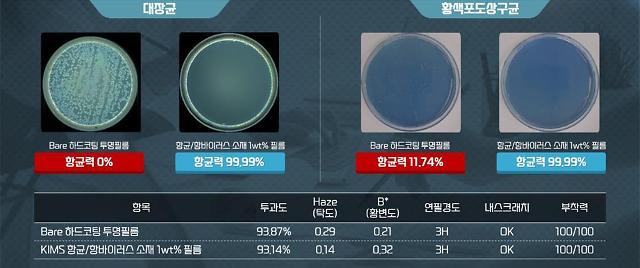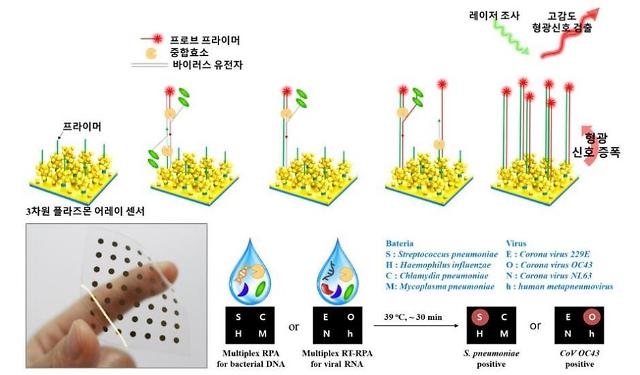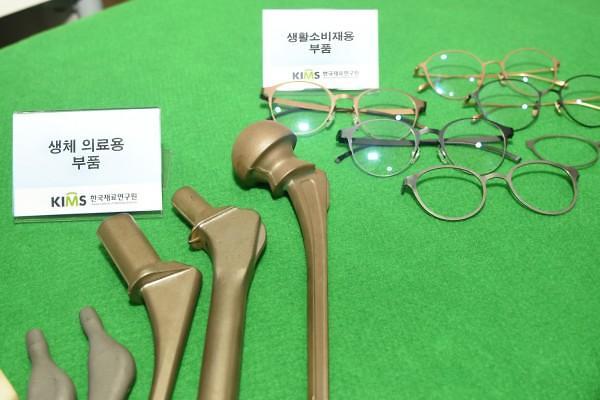
[Courtesy of KIMS]
SEOUL -- A government-funded research body in South Korea has developed a functional antibacterial and antiviral additive that can be widely applied to display films, functional fibers, home appliance films, window films, car interior and exterior materials, and sanitary products. If it is mixed with resin, the antibacterial effect is semi-permanent.
The colorless, transparent additive that generates high metal ions was developed through a formulation process by mixing several metal compounds, according to the Korea Institute of Materials Science (KIMS). It is made of a non-toxic material that does not use organic antibacterial agents and nano compounds.
"We will try to materialize and commercialize it as soon as possible," KIMS head Lee Jung-hwan said in a statement on February 3, promising to support the quick localization of antibacterial and antiviral materials that can target overseas markets. The research team confirmed through experiment that the effect of its new addiction has lasted for months.
The pandemic has called for the enhanced hygiene of public facilities. Antibacterial films and similar materials are widely used to cover elevator buttons, door handles and other objects that are frequently touched by many random people. The fear of infection has triggered the spread of a contactless culture that prompted the fast adoption of antibacterial materials and non-face-to-face services.
Antibacterial films are used for elevator buttons, doorknobs, and touch screens, but they are opaque and damaged if used a lot, making it difficult to continue their antibacterial effects. By adding one to two weight percent to resins, Kim's team found that the new additive can improve antibacterial properties by 99.99 percent without changing optical, mechanical, and thermal properties to existing products. Ultraviolet and thermosetting operations are possible for existing products without additional processes.
"We are currently conducting mass production tests with various technology demand companies," Kim Chang-su, a KIMS researcher, was quoted as saying. "We will do our best to contribute to solving the problem of new infectious diseases in preparation for the post-COVID-19 era in which interest in personal hygiene will increase significantly."




